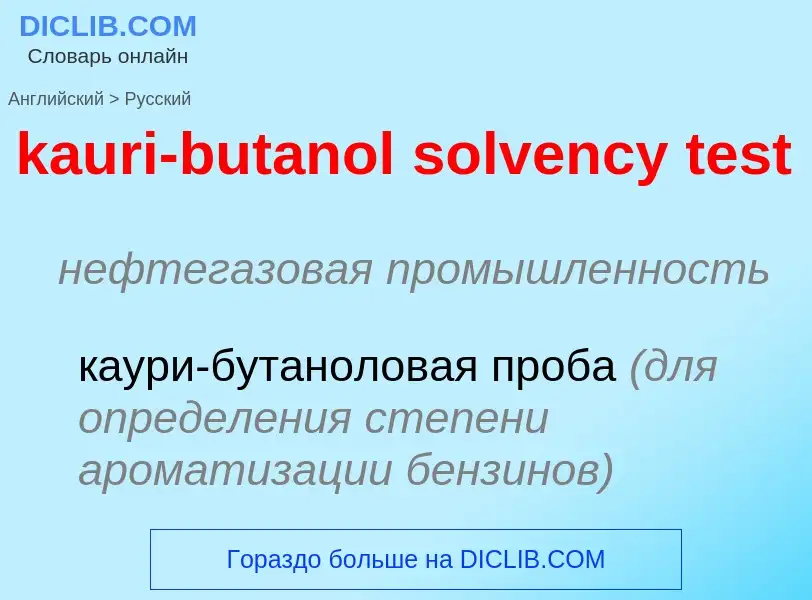Traducción y análisis de palabras por inteligencia artificial ChatGPT
En esta página puede obtener un análisis detallado de una palabra o frase, producido utilizando la mejor tecnología de inteligencia artificial hasta la fecha:
- cómo se usa la palabra
- frecuencia de uso
- se utiliza con más frecuencia en el habla oral o escrita
- opciones de traducción
- ejemplos de uso (varias frases con traducción)
- etimología
kauri-butanol solvency test - traducción al ruso
нефтегазовая промышленность
каури-бутаноловая проба (для определения степени ароматизации бензинов)
['sɔlv(ə)nsi]
общая лексика
ликвидность баланса
платежеспособность
нефтегазовая промышленность
растворяющая способность
Смотрите также
существительное
общая лексика
растворяющая способность
экономика
платежеспособность (способность своевременно погашать долговые обязательства)
юриспруденция
платёжеспособность
Definición
Wikipedia
The Kauri-butanol value ("Kb value") is an international, standardized measure of solvent power for a hydrocarbon solvent, and is governed by an ASTM standardized test, ASTM D1133. The result of this test is a scaleless index, usually referred to as the "Kb value". A higher Kb value means the solvent is more aggressive or active in the ability to dissolve certain materials. Mild solvents have low scores in the tens and twenties; powerful solvents like chlorinated solvents and naphthenic aromatic solvents (i.e. "High Sol 10", "High Sol 15") have ratings that are in the low hundreds.
In terms of the test itself, the kauri-butanol value (Kb) of a chemical shows the maximum amount of the hydrocarbon that can be added to a solution of kauri resin (a thick, gum-like material) in butanol (butyl alcohol) without causing cloudiness. Since kauri resin is readily soluble in butyl alcohol but not in most hydrocarbon solvents, the resin solution will tolerate only a certain amount of dilution. "Stronger" solvents such as benzene can be added in a greater amount (and thus have a higher Kb value) than "weaker" solvents like mineral spirits.

